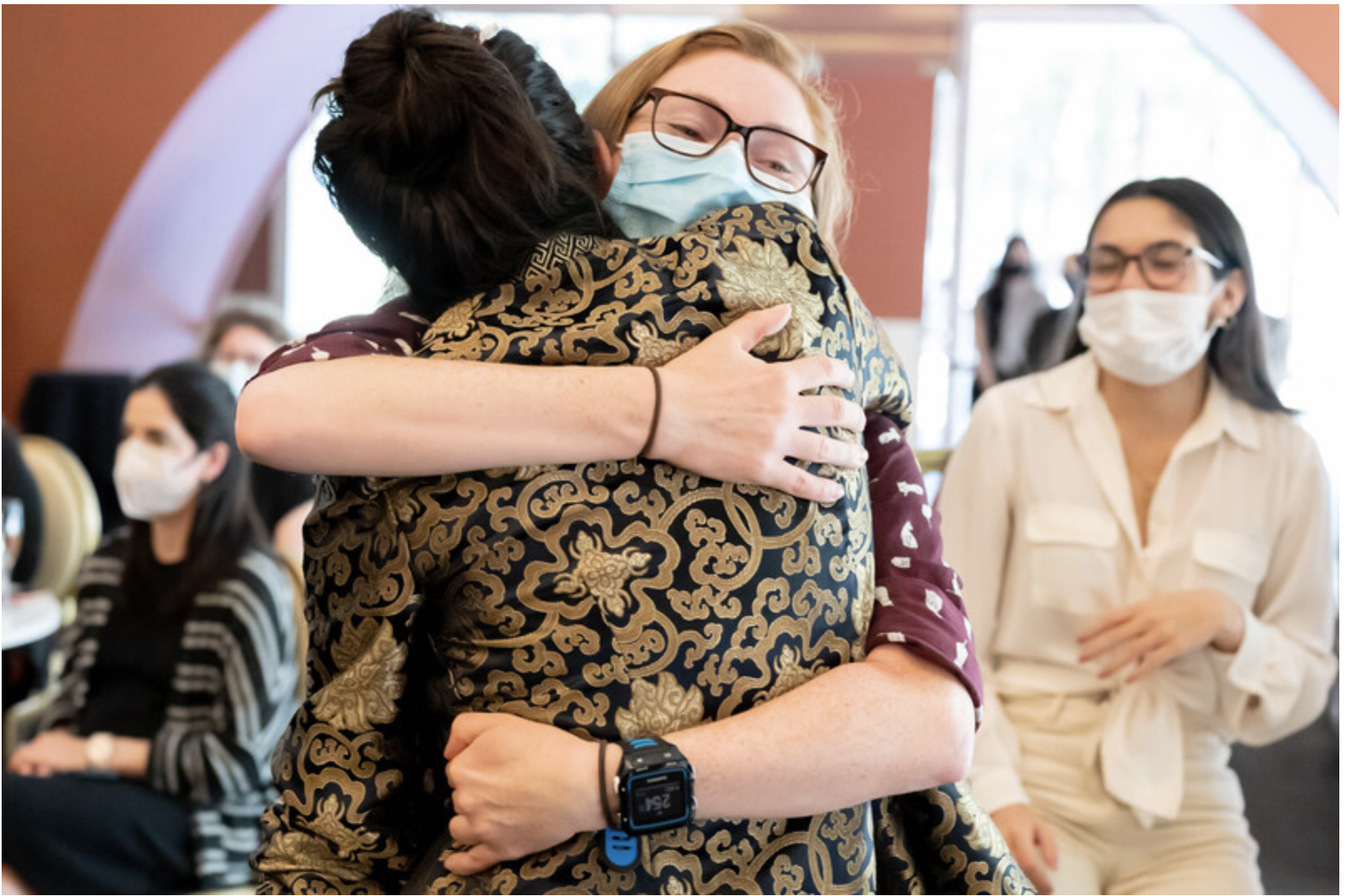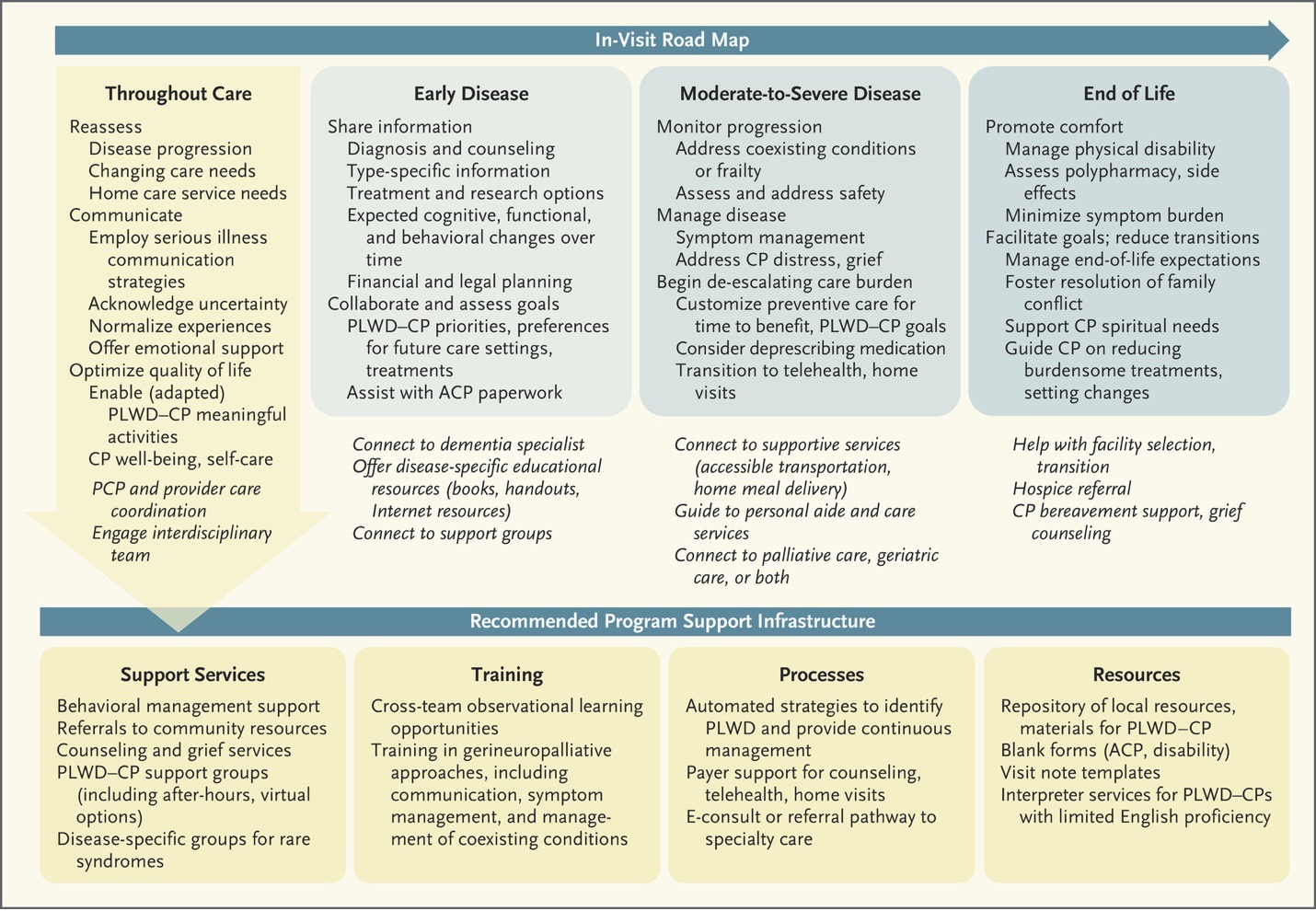General Cardiology Research
Home- and Community-Based Care for Older Adults with Serious Illness

Research Overview
The model of care provided by hospice is crucial due to the limited alternatives for older adults with serious illnesses living at home. Approximately four million adults in the U.S. face challenges accessing office-based care due to frailty, functional impairments, and being home-limited. Home-based medical care, including primary and palliative care, offers a solution for ongoing care in the community setting. Dr. Harrison’s research efforts have focused on developing quality measurements for home-based care, conducting formative qualitative research and stakeholder groups to understand research priorities, and using large datasets to understand the impact of COVID on home-based care.
Team and Funding
This body of work was made possible through funding from organizations such as Patient-Centered Outcomes Research Institute (PCORI), National Institute on Aging (NIA), the Agency for Healthcare Research and Quality (AHRQ), and national private foundations such as the Commonwealth Fund and the Retirement Research Foundation that support independent research on healthcare and make grants to improve healthcare practice and policy.
Research Impact
Through these projects, Dr. Harrison has defined quality domains for home-based medical care, created tailored quality measures, established a clinical data registry, and launched a National Learning Collaborative for improving home-based medical care. With PCORI support, Dr. Harrison conducted research with homebound older adults and caregivers to develop a research agenda, with a prioritized list of recommendations published in the Journal of Applied Gerontology.
Key Publications
A sample of our publications within this research domain is categorized into focus areas:
Developing quality improvement measures in home-based medical care practices
-
Ritchie CS, Leff B, et al. "A Quality of Care Framework for Home-Based Medical Care."
-
Leff B, Sheehan O, Bhatnagar S, Harrison KL, Barrows RC, Ritchie CS. "To What Extent Are the Centers for Medicare & Medicaid Services 2019 MIPS Quality Measures Inclusive of Home-Based Medical Care?."
Engaging the community to develop a research agenda for homebound older adults and their caregivers
-
Leff B, Sheehan OC, et al. "A Home-Based Care Research Agenda by and for Homebound Older Adults and Caregivers."
-
Harrison KL, Leff B, et al. "Virtual Research Stakeholder Groups with Isolated Homebound Elders and Caregivers: Lessons Learned Relevant to Research during Pandemics."
-
Eaton England AL, Ritchie CS, et al. "Attitudes of Homebound Older Adults and Their Caregivers Toward Research and Participation as Research Advisors."
-
Sheehan OC, Ritchie CS, et al. "Unanticipated Therapeutic Value of the Patient-Centered Outcomes Research Institute (PCORI) Stakeholder Engagement Project for Homebound Older Adults."
-
Mickler AK, Leff B, et al. "Understanding the Daily Experiences and Perceptions of Homebound Older Adults and Their Caregivers: A Qualitative Study."
Home-based care in the context of COVID, using data from Optum Labs and National Health and Aging Trends Study
-
Harrison KL, Leff B, et al. "What's Happening at Home: A Claims-based Approach to Better Understand Home Clinical Care Received by Older Adults."
-
Ornstein KA, Ankuda CK, et al. "Medicare-funded home-based clinical care for community-dwelling persons with dementia: An essential healthcare delivery mechanism."
-
Ankuda CK, Kotwal A, et al. "The Experience of Homebound Older Adults During the COVID-19 Pandemic."
-
Allison TA, Oh A, et al. "Extreme Vulnerability of Home Care Workers During the COVID-19 Pandemic-A Call to Action."
Hospice and End-of-Life Care

Research Overview
As a former leader within a community-based hospice, Dr. Harrison has dedicated her career to enhancing hospice and palliative care through interdisciplinary approaches. Hospice provides interdisciplinary care to enrollees and families to reduce suffering and support dignity wherever the person calls home. Palliative care is a broader umbrella of care approaches that are relevant at any age and any stage of serious illness. Dr. Harrison’s research evaluates the efficacy of the Medicare Hospice Benefit and its ability to meet the needs of specific groups, such as older adults with dementia.
Team and Funding
Dr. Harrison’s research initiatives are collaborative efforts, involving a team of experts from various disciplines. The multi-site qualitative projects have garnered support from prestigious funding bodies, including the Palliative Care Research Cooperative Group funded by the National Institute of Nursing Research (NINR), and from NIH’s National Institute of Aging (NIA).
Research Impact
The impact of Dr. Harrison’s research is evident in the way it addresses key issues within the hospice care system. By identifying the gaps in Medicare policies and the unique needs of individuals with dementia, her work contributes to shaping more inclusive and effective end-of-life care services. The studies also show the importance of advanced care planning and the ethical challenges faced by hospice staff, providing an evidence-based foundation for improving care delivery and policy formulation.
Key Publications
A sample of our publications within this research domain is categorized into focus areas:
National Survey Data and Claims Analysis
-
Harrison KL, Cenzer I, et al. “Hospice Improves Care Quality For Older Adults With Dementia In Their Last Month Of Life.”
-
Harrison KL, Cenzer I, et al. “Functional and clinical needs of older hospice enrollees with coexisting dementia."
-
Harrison KL, Adrion ER, et al. “Low Completion and Disparities in Advance Care Planning Activities Among Older Medicare Beneficiaries."
-
Aldridge MD, Hunt LJ, et al. "Health Care Costs Associated With Hospice Use For People With Dementia In The US."
-
Hunt LJ, Gan S, et al. "Hospice Quality, Race, and Disenrollment in Hospice Enrollees With Dementia."
-
Trandel ET, Lowers J, et al. "Barriers of Acceptance to Hospice Care: a Randomized Vignette-Based Experiment."
Multi-Site Qualitative Studies
-
Oh A, Allison TA, et al. "Front-Line Hospice Staff Perceptions of Barriers and Opportunities to Discussing Advance Care Planning With Hospice Patients and Their Families."
-
Hunt LJ, Garrett SB, et al. "Goals of Care Conversations Don't Fit in a Box": Hospice Staff Experiences and Perceptions of Advance Care Planning Quality Measurement."
-
Dressler G, Garrett SB, et al. "It's Case by Case, and It's a Struggle": A Qualitative Study of Hospice Practices, Perspectives, and Ethical Dilemmas When Caring for Hospice Enrollees with Full-Code Status or Intensive Treatment Preferences."
-
Harrison KL, Allison TA, et al. "Hospice Staff Perspectives on Caring for People with Dementia: A Multisite, Multistakeholder Study."
Understanding and Improving Care for Dementia

Research Overview
One of the central research domains of the Harrison Network aims to mitigate suffering associated with dementia. An array of qualitative and quantitative studies were carried out to understand needs, support gaps, and identify opportunities to enhance care for individuals with dementia and their care partners. We aim to use these insights to inform interventions that align with Stages 0 and 1 of the NIH Stage Model for Behavioral Intervention Development.
Team and Funding
This initiative was undertaken by a transdisciplinary team and received generous support from the Global Brain Health Institute, Alzheimer Association, and through career development awards from UCSF, NIH/NIA, and the National Palliative Care Research Center.
Research Impact
Our work aims to enhance the care provided to dementia patients in various care settings and throughout all stages of the condition. Our findings have led us to be able to create our Recommendations for Gerineuropalliative Dementia Care across the Disease Continuum:

Shown are recommendations for gerineuropalliative dementia care, based on synthesized qualitative and quantitative research. Most persons living with dementia will need items listed in the “early disease” box addressed before those in the “moderate-to-severe disease” box, but tasks such as assessing goals and priorities will continue to be relevant at all stages. ACP denotes advance care planning, CP care partner, PCP primary care provider, and PLWD person living with dementia.
Key Publications
A sample of our publications within the Dementia research domain is categorized into focus areas:
Interviews with Patients and Care Partners
- Harrison KL, Garrett SB, et al. "I Didn't Sign Up for This": Perspectives from Persons Living with Dementia and Care Partners on Challenges, Supports, and Opportunities to Add Geriatric Neuropalliative Care to Dementia Specialty Care."
- Shafir A, Ritchie CS, et al. "Captive by the Uncertainty"-Experiences with Anticipatory Guidance for People Living with Dementia and Their Caregivers at a Specialty Dementia Clinic."
- Radcliffe KG, Halim M, Ritchie CS, et al. “Care Setting Transitions for People With Dementia: Qualitative Perspectives of Current and Former Care Partners."
- Allison TA, Gubner JM, et al. “Meaningful Activities and Sources of Meaning for Community-Dwelling People Living with Dementia."
Interviews with Care Partners of Rapidly Progressive Dementias
- Harrison KL, Garrett SB, Gilissen J, et al. “Developing neuropalliative care for sporadic Creutzfeldt-Jakob Disease."
- Sideman AB, Gilissen J, et al. “Caregiver Experiences Navigating the Diagnostic Journey in a Rapidly Progressing Dementia."
Interviews with Clinicians:
- Bernstein Sideman A, Harrison KL, et al. “Practices, challenges, and opportunities when addressing the palliative care needs of people living with dementia: Specialty memory care provider perspectives."
- Harrison KL, Allison TA, et al. “Hospice Staff Perspectives on Caring for People with Dementia: A Multisite, Multistakeholder Study."
Chart Reviews and Registry Data Analyses
- Naasan G, Boyd ND, et al. “Advance Directive and POLST Documentation in Decedents With Dementia at a Memory Care Center: The Importance of Early Advance Care Planning."
- Boyd ND, Naasan G, et al. “ Characteristics of people with dementia lost to follow-up from a dementia care center.”
- Harrison KL, Bull JH, et al. “Community-Based Palliative Care Consultations: Comparing Dementia to Nondementia Serious Illnesses."
Community-dwelling Persons with Dementia, using Nationally Representative Survey Data Analyses
- Harrison KL, Ritchie CS, et al. “Care Settings and Clinical Characteristics of Older Adults with Moderately Severe Dementia."
- Harrison KL, Ritchie, CS, et al. “Life expectancy for community-dwelling persons with dementia and severe disability."
- Ornstein KA, Ankuda CK, et al. “Medicare-funded home-based clinical care for community-dwelling persons with dementia: An essential healthcare delivery mechanism."
- Li J, Bancroft H, et al. “Out-of-Pocket Expenses for Long-Term Care by Dementia Status and Residential Setting among US Older Adults."
Hospice Care Insights using Nationally Representative Survey Data Analyses
- Harrison KL, Cenzer I, et al. “ Functional and clinical needs of older hospice enrollees with coexisting dementia."
- Harrison KL, Cenzer I, et al. “Hospice Improves Care Quality For Older Adults With Dementia In Their Last Month Of Life."
Thought Pieces on Care Systems and Policies
- Harrison KL, Hunt LJ, et al. “Dying With Dementia: Underrecognized and Stigmatized.”
- Harrison KL. “The Hidden Curriculum Of Hospice: Die Fast, Not Slow."
- Hunt LJ, Harrison KL. “Live discharge from hospice for people living with dementia isn't "graduating"-It's getting expelled."
- Hunt LJ, Harrison KL. et al. “Instead of wasting money on aducanumab, pay for programs proven to help people living with dementia."
Interventions for Quality of Life and Care
- Possin KL, Merrilees JJ, et al. “ Effect of Collaborative Dementia Care via Telephone and Internet on Quality of Life, Caregiver Well-being, and Health Care Use: The Care Ecosystem Randomized Clinical Trial."
- Guterman EL, Kiekhofer RE, et al. “Care Ecosystem Collaborative Model and Health Care Costs in Medicare Beneficiaries With Dementia: A Secondary Analysis of a Randomized Clinical Trial."
- Bernstein A, Harrison KL, et al. “ The Role of Care Navigators Working with People with Dementia and Their Caregivers.”
- Rosa TD, Possin KL, et al. “Variations in Costs of a Collaborative Care Model for Dementia."
- Bernstein A, Merrilees J, et al. “Using care navigation to address caregiver burden in dementia: A qualitative case study analysis."
